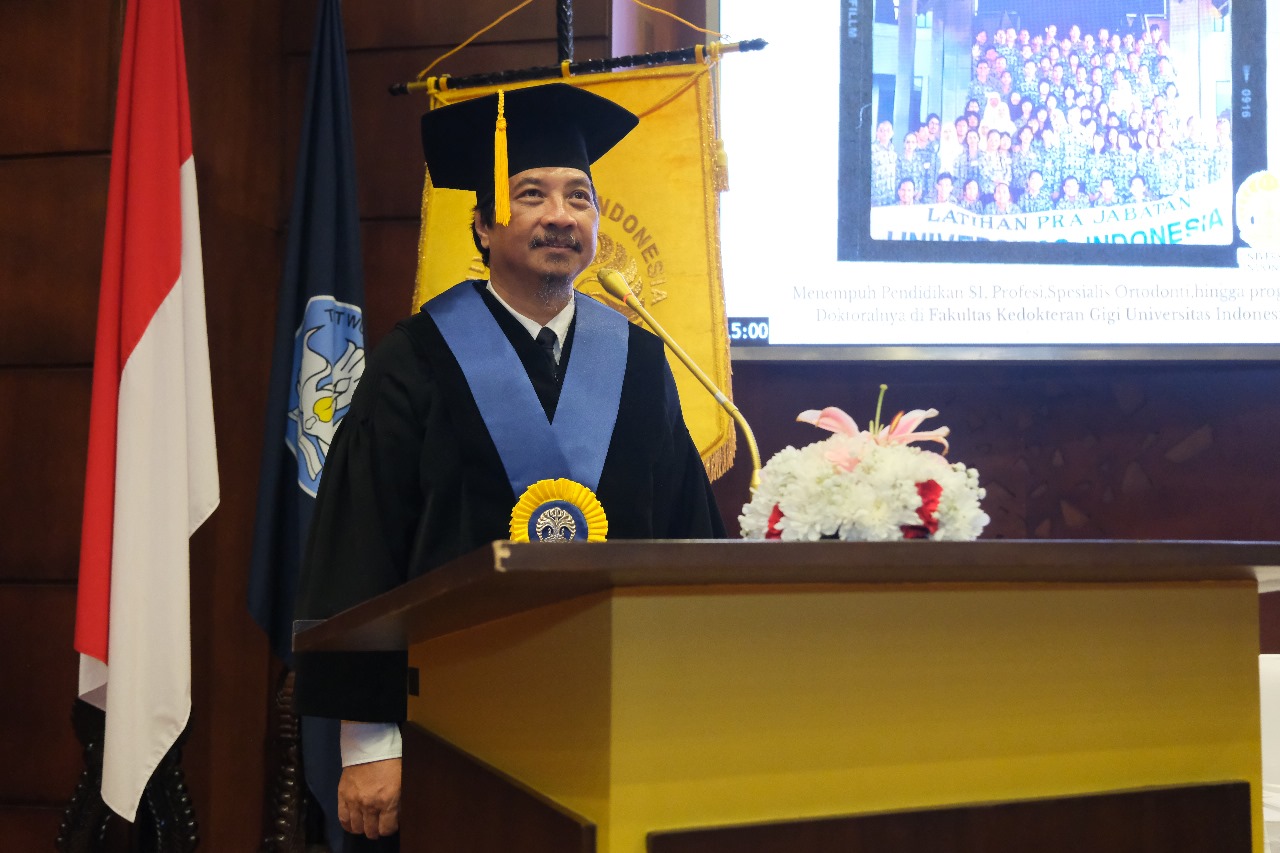Prof. Feri Yusivar, M.Eng., professor of Electric Drives and Motor Control, Faculty of Engineering, University of Indonesia (UI), revealed that the Indonesian government is committed to achieving Net Zero emissions by 2060 as part of the global energy transition. The government has developed an Energy Transition Roadmap that includes projected growth of electric vehicles at the end of each decade towards 2060. However, Indonesia’s Electric Vehicle Roadmap is still considered conservative because it does not include new technology variables that will emerge in the future.
The results of a systematic study by Prof Feri and his research team show that Indonesia has the potential to adopt up to 100 million electric vehicles by 2060, 30 per cent above the government’s projection. The high adoption rate of electric cars in Indonesia is driven by five main factors, namely the presence of Artificial Intelligence (AI) technology, reliable infrastructure, policy changes, changes in the views of the younger generation, and Indonesia’s geographic landscape where electricity has entered earlier than fuel oil (BBM).
“The current condition and potential of the electric vehicle market in Indonesia shows significant growth. Sales of electric cars in Indonesia in the first half of 2023 recorded a very significant increase. The number of units sold exceeded 23,260 units. This is a dramatic increase compared to the same period in the previous year, 2022, where sales only reached 3,535 units. This 557.99 per cent increase reflects a major shift in the Indonesian market’s acceptance of electric vehicles,” Prof. Feri said.
This was conveyed in his inaugural speech as Professor in Electric Drives and Motor Control, Electrical Engineering, FTUI. The inaugural ceremony was led by UI Rector, Prof. Ari Kuncoro, S.E., M.A., Ph.D. at Balai Sidang, UI Campus, Depok, on Wednesday (29/11). At that time, he delivered a scientific oration entitled “Opportunities and Challenges for Technological Independence of Electric Vehicle Drive Systems in Indonesia”.
He said that electric vehicles are supported by integrated key components, including traction batteries, inverters, controllers, and traction motors and chargers. According to Prof Feri, the propulsion system in electric vehicles is a key component in the transition to cleaner transport. It involves electric traction motors and power electronics that play a vital role in advanced vehicle propulsion systems. The drive system in an electric vehicle can improve the efficiency and power density of the vehicle, also ensuring an economical and marketable vehicle solution.
In essence, controlling an electric motor or machine is controlling the torque and flux of the motor by controlling the motor’s electric current. Initially, controlling the torque and reduction of a motor by controlling the three-phase alternating electric current was very difficult. However, with the discovery of the concept of transformation of 3-phase current components into 2-phase in a rotating reference axis, controlling motor torque and fluction through motor current transformed into 2-phase current became possible.
This method involves mapping the 3-phase motor current onto the reference axes, in this case, the d-axis and q-axis. By controlling the d-axis current, we indirectly control the motor flux. Controlling the q-axis current indirectly allows for controlling the motor torque. This method of controlling motor flux and motor torque separately is called vector control.
Dean of FTUI, Prof. Dr. Heri Hermansyah, S.T., M.Eng., IPU said, “Prof. Feri’s research that emphasises independence in electric vehicle traction system technology has important benefits for the future of the automotive industry. This is especially so in the face of climate change and air pollution challenges. Electric vehicles offer improvements in safety, control, and energy efficiency compared to fossil fuel-powered vehicles.”
Before conducting studies on electric vehicle drive system technology, Prof Feri had conducted many similar studies. Some of them are Improved Current and MTPA Control Characteristics Using FEM-Based Inductance Maps for Vector-Controlled IPM Motor (2023); Autonomous Human and Animal Classification Using Synthetic 2D Tensor Data Based on Dual-Receiver mmWave Radar System (2023); and System modelling of gear-shifting on automated manual transmission system based on integrated control of induction motor (2021).
Prof. Dr. Ir. Feri Yusivar, M.Eng. completed his Bachelor’s Degree in Electrical Engineering at the University of Indonesia in 1992; completed his Master’s Degree in Electric Drives and Motor Control at Waseda University, Japan in 2000; and obtained his Doctorate in Electric Drives and Motor Control at Waseda University, Japan in 2003. In 2021, Prof. Feri received the Satya Lancana Dharma Makara Honour Certificate for 25 years of service from FTUI. Currently, he serves as Director of the Research Centre for Advanced Vehicles (RCAVe) FTUI.
Prof Feri’s inauguration ceremony was also attended by Professor of Institut Teknologi Sepuluh November, Prof.Dr.Ir. Mauridhi Hery Purnomo, M.Eng.; Principal Expert Researcher of National Research and Innovation Agency and Research Professor of Universitas Komputer Indonesia, Prof. Dr.-Eng. Estiko Rijanto, M.Eng.; Professor of Jendral Soedirman University, Prof. Dr.Eng. Ir Suroso ST, M.Eng.; Directorate of Research Facilitation of the Education Fund Management Agency, Wisnu Sardjono; Director of PT Mobil Anak Bangsa, Bambang Tri Supandji; and Director of PT NSAD, Nur Hidayat.
***
Public Communication Office
Faculty of Engineering, University of Indonesia

